Table of Contents
Testosterone is the primary male sex hormone, which is also produced in women’s bodies in a certain amount. Its level naturally decreases with age, but more significant decrease may also occur due to other factors. Learn what causes testosterone deficiency, what are its symptoms, and how to boost its levels to support overall health.
What is testosterone
Testosterone is a hormone that is very important for man’s health and it is responsible not only for fertility or muscle mass. It is found in humans, as well as in other animals. This primarily male hormone has several roles in the body, including proper fertility function, production of male sexual characteristics, and regulation of gender differences. [1] [2]
Testosterone was once considered a hormone mainly involved in physiology and androgenesis in men and boys. In addition, however, it affects bone health, which can be attributed to its conversion to estrogen. The effect of testosterone is complex, and researchers are also studying its role in pain and cardiovascular function in men and women. To emphasize the importance of testosterone, all processes where it plays a crucial role are listed below [3] [4]:
- size and strength of muscles
- growth and strength of bones
- deepening of the voice and the occurrence of hair
- libido function
- penis and testicular development and sperm production
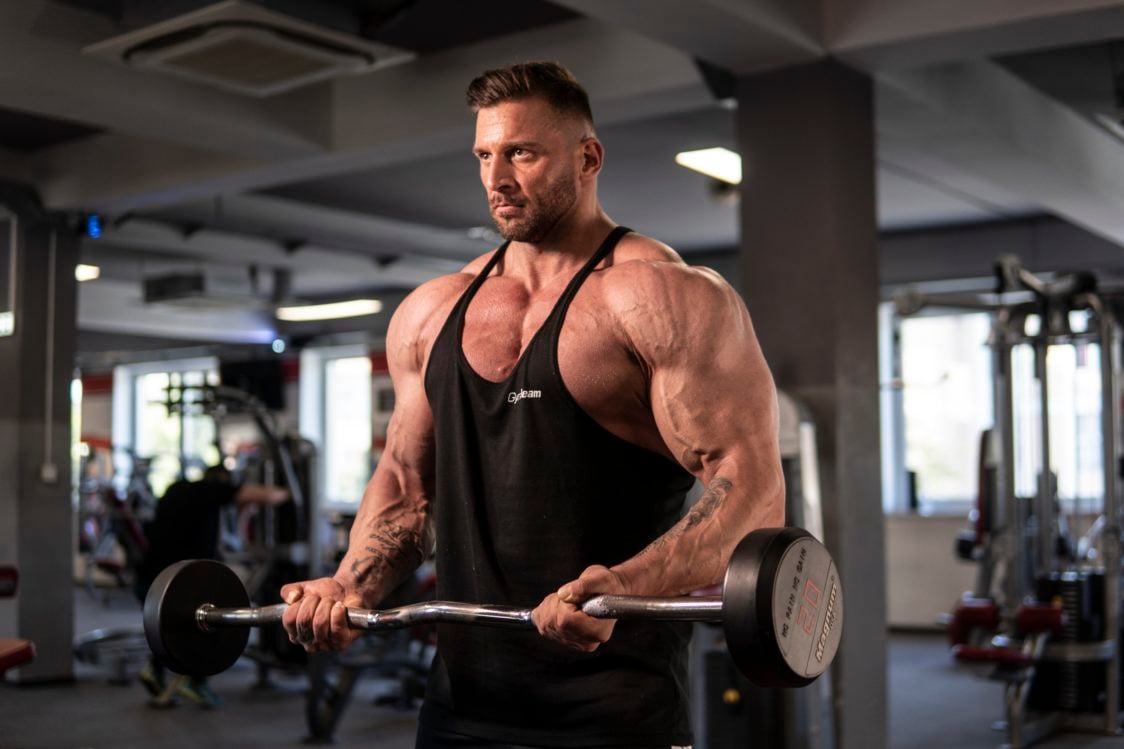
Symptoms of low testosterone levels
Testosterone levels in men naturally decrease during their lifetime, more precisely after the age of 30, its amount decreases by 1% per year. Low testosterone is also called male hypogonadism. This is a condition in which the testes do not produce enough testosterone. However, there are several other reasons for its low levels. It is not easy to determine how common low testosterone is, but so far in total it is 2.1% of men, ie 2 men out of 100 have the mentioned difficulties. However, we must also take into account their age. For young men it is about 1%, but for older men over the age of 80, about 50% have this problem. [5] [6] [8]
Interestingly, testosterone deficiency is more common in obese men. According to research, low testosterone levels have been found in 6.4% of men with average weight, while up to 30% of obese men can have testosterone deficiency. It’s similar in the case of diabetes, other research declares that approximately one of four diabetics also has low testosterone levels. [6]
You are probably wondering what are normal testosterone levels and when are they considered low. The upper normal limit is considered to be 1000 to 1200 nanograms per deciliter. The low limit is set to 300 nanograms. According to the American Urological Association, values below 300 nanograms are considered low. [6] [9]
How can you find out if you have low testosterone? Focus on the most common symptoms mentioned in the following lines.
Erection problems and lowered sexual drive
Lower testosterone levels may result in a reduction in sex drive, which naturally decreases with age, but is more common in people with low testosterone. Another sign is the erection problem, which may be due to the reduced production of nitric oxide in the penile tissue, which is stimulated by testosterone. It is also worth mentioning that erectile dysfunction is not only the result of low testosterone, but also high cholesterol, high blood pressure, stress and anxiety, or alcohol consumption and smoking. [7]
Depression and mood swings
Lowered sexual drive is basically also associated with emotions, but in addition to it, low testosterone levels can result in depression and sadness. Testosterone has an effect on emotional and mood regulation, so symptoms of its deficiency can also include fatigue, irritability and the mentioned reduction in sex drive. Last but not least, problems with motivation and self-confidence should also be mentioned in this context. [5]
Physical changes
In addition to sexual and psychological changes, testosterone deficiency is accompanied by certain physical changes. These include a reduction in muscle mass and energy, an increase in body fat, and also the so-called gynecomastia (enlargement of the breasts) and hair loss. [7] [10]
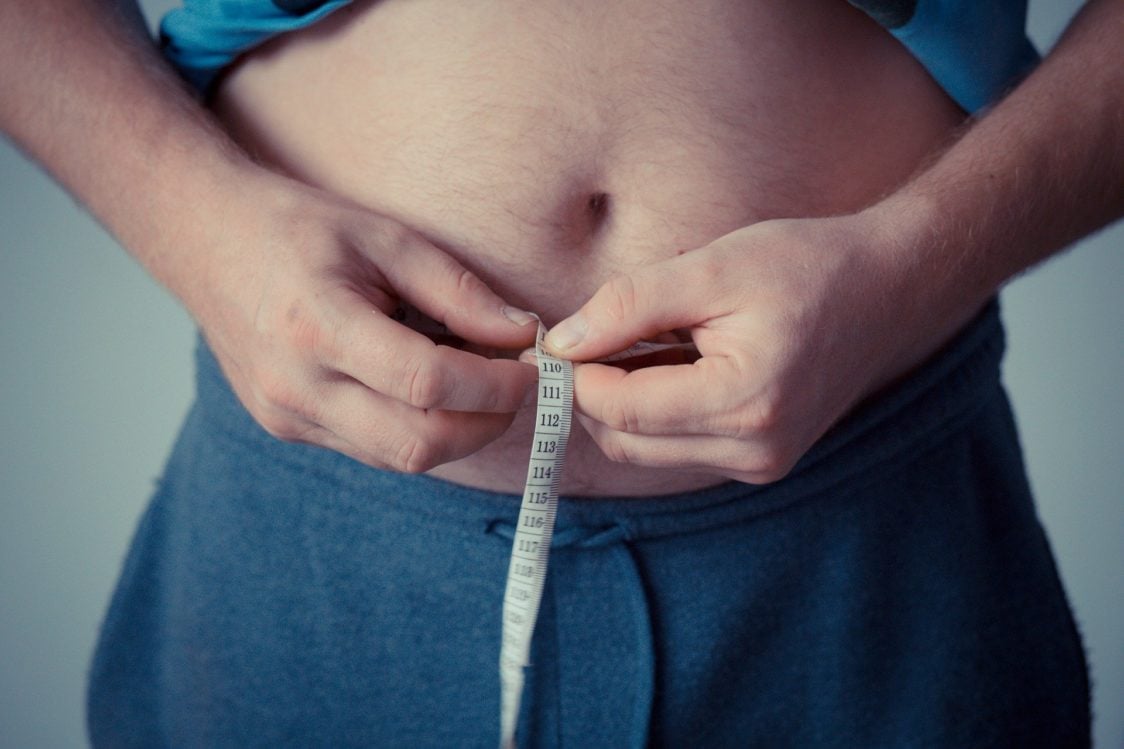
You might be interested in these products:
How to increase testosterone levels?
Testosterone deficiency, or hypogonadism, can be determined by doctors, sometimes by performing tests to determine the cause of its low levels. Testosterone replacement therapy (TRT) can be in the form of injections, patches or gels. However, it should be mentioned that this type of treatment may have several side effects [10] [11]:
- higher risk of heart disease
- breast enlargement
- reduction of sperm production and testicle shrinkage
- acne and other skin reactions
- sleep apnea
In addition to medical treatment, there are natural ways to promote testosterone production, and the aim of the article is to focus on them.
Natural Ways To Increase Testosterone Levels
Maintain a healthy body weight
Higher body weight may be the reason for low testosterone levels. According to one study in the journal Clinical Endocrinology, obese young men between 14-20 years have up to 50% less testosterone than those who are not overweight. [12] Note that having higher weight in older age is not stated.
You may not be surprised that people with higher testosterone levels also have more muscle. This is partly due to the process for which adipose tissue is responsible. It produces the enzyme aromatase, which converts androgens into estrogens. However, estrogen, via negative feedback in the hypothalamus, reduces testosterone production. [13] So if you think it would be nice to lose some pounds to look better, do the same to boost your testosterone levels.
Testosterone and a balanced diet
A balanced diet and healthy weight are related, so it is probably no surprise that a good lifestyle can affect testosterone. First and foremost, it is important to maintain optimal nutrient intake for the long term. This is because frequent dieting or overeating may affect your testosterone levels. Try to focus on a balanced intake of protein, carbs and fats. [14]
In addition, research in 2009 suggests that d-aspartic acid (DAA) also helps to increase testosterone synthesis. Foods high in d-aspartic acid include, for example, legumes and nuts, or products with omega-3 fatty acids. Therefore, if you want to boost your testosterone, you should make sure that your eating plan contains these foods. [15]

To produce testosterone, our glands need magnesium and zinc, and our Leydig cells need cholesterol. Therefore, certain foods such as cabbage, broccoli and cauliflower can also help you eliminate estrogens while boosting testosterone. That’s why, try including them into your eating plan. [16]
Exercise and testosterone
In addition to maintaining weight and a balanced diet, exercise and effective types of workout are also important to increase testosterone levels. According to research in 2017, physical activity rather than weight loss help testosterone production. However, it is also true that physical activity should be done in moderation since higher levels of exercise may cause low testosterone. [12] [17]
All types of exercise are beneficial, but for short-term and long-term increase in testosterone, strength training and high-intensity interval training (HIIT) are the best. [14]
To support testosterone production, you should focus on weight lifting. Therefore, keep the following tips in mind when working out [16]:
- Use compound exercises – deadlift, squats, bench press and shoulder press
- Increase load – exercising with heavier weights promotes higher testosterone production
- Don’t take each set to failure – we intentionally use the word “each” as it’s okay push yourself to failure, but only on last set
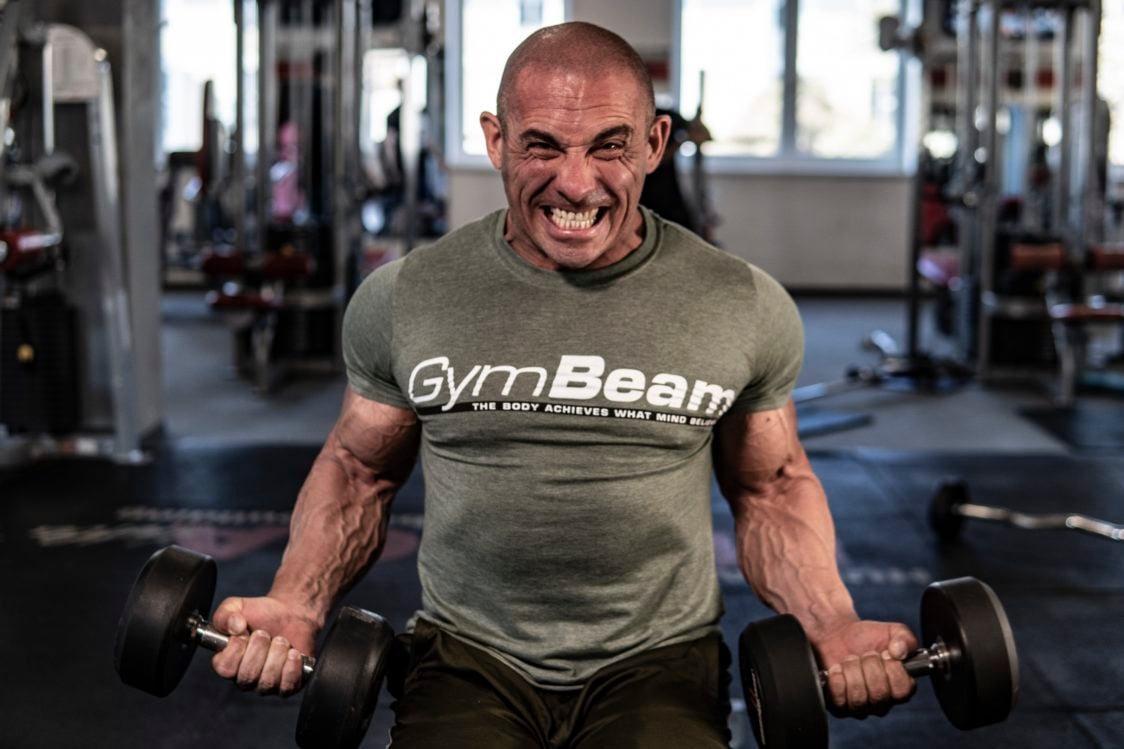
Testosterone and alcohol
You will probably agree that excessive alcohol consumption is harmful to the human body in every aspect. Moreover, alcohol also has a negative effect on testosterone levels, and we are not talking about an insignificant effect. There are 3 glands needed for testosterone production – the hypothalamus, the anterior pituitary gland and the testes. Alcohol affects each of them, which can result in disruption of testosterone production. [18]
A 2019 study analyzed the negative impact of alcohol on testosterone levels in men. It presents the results of a study comparing chronic alcoholic men with volunteers who had to drink a pint of whiskey a day (US pint = 473,176 ml, or 0.47 l) for 30 days. Almost all the alcoholic men had insufficient or low testosterone levels. In the healthy volunteers, testosterone levels began to reduce 72 hours after digestion and reached the same levels as those in alcoholic men after 30 days. [18] [19] It means that it doesn’t take years to get into a heath state similar to a hard alcoholic, even a month is enough.

Excessive alcohol consumption also has an adverse effect in the short term. One night when you overdo it with alcohol will reduce your testosterone by up to 40%, which can last for another 1-2 days. The worst case is chronic alcohol consumption since it can provoke testicular atrophy (shrinkage), which may be irreversible. [13]
Do you want to know more about the effects of alcohol on athletes? Learn more in the article – How does alcohol affect weight loss, muscle regeneration and growth.
Testosterone, stress and cortisol
Many call stress an “invisible killer” because its impact on health is often down-played. Under stress, the levels of cortisol, a hormone responsible for several processes, such as metabolism and immunity, increase. Last but not least, high cortisol and stress can increase appetite, resulting in both body weight and harmful body fat increase, which can be reflected in testosterone levels. [12] [14] Stress and anxiety are a common part of many people’s lives, but their negative impact is far more complex than many people think.
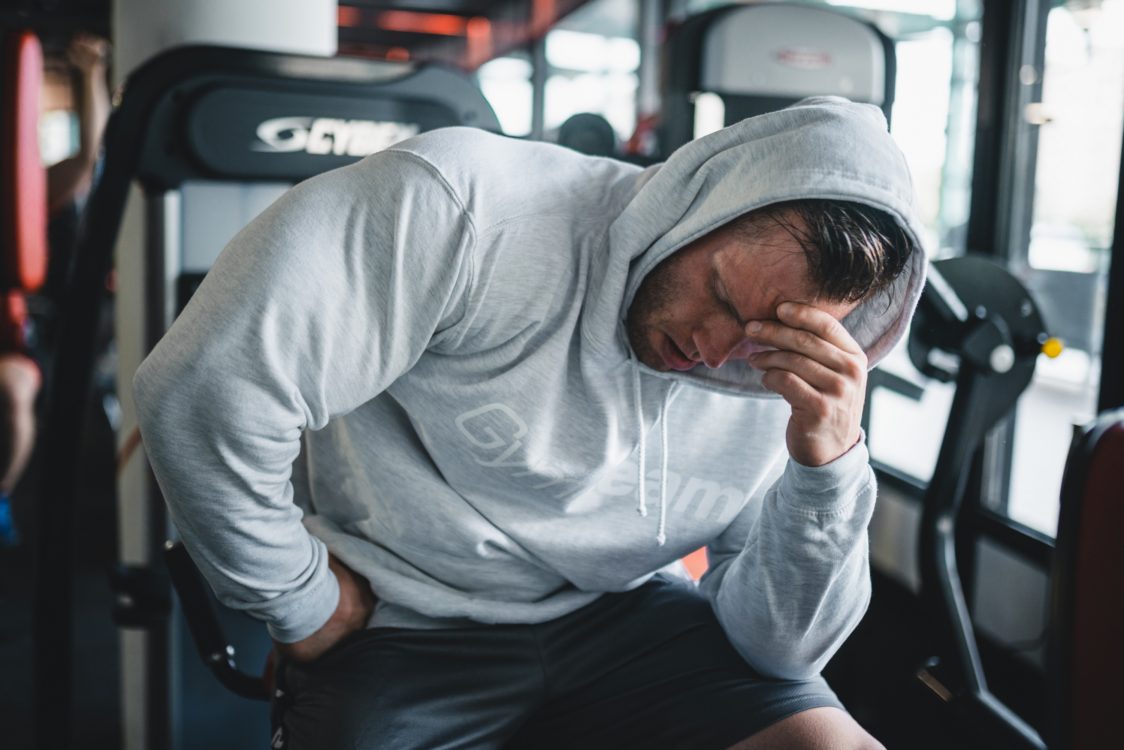
Testosterone and sleep
The importance of 8-hour sleep is not just a myth. For most of the population, 7-9 hours of sleep are associated with good health. After a healthy diet, sleep is the second most important factor for testosterone production. [13] According to one study, as little as 1 week of restricted sleep can cause a daily drop in testosterone levels by up to 15%. [12] Good sleep can not only boost testosterone, but also decrease cortisol, which was mentioned in the previous point. [16] That’s why it is important to be more active during the day and give the body a rest at night for your hormonal balance.
Testosterone Supplements
Proper testosterone production can be supported not only by sleep, exercise and a balanced diet, but also by nutritional supplements. Here are some supplements that are helpful [20] [21] [22]:
- Vitamin D – contributes to the regulation of testosterone levels. The body gets it from sunlight, but you may need to supplement it if you spend too much time indoors, have darker skin, or live far from the equator. Among other things, increasing vitamin D levels can also promote sperm quality.
- DAA -d-aspartic acid – this amino acid has a positive effect on testosterone, which, according to scientists, could be caused by an increase in luteinizing and follicle-stimulating hormone.
- Zinc – testosterone production can also be “blocked” by zinc deficiency. To a greater extent, athletes can come across this problem because it is lost through sweat. You can obtain zinc with food, and you can also increase its intake with nutritional supplements.
- Ashwagandha – a herb known in traditional Indian medicine, which is primarily an adaptogen, which helps to deal with anxiety and stress. Moreover, according to research, Ashwagandha supplementation had increased testosterone by 10-22% in men, which proves that it also has a positive effect on testosterone.
- DHEA – this abbreviation represent the hormone dehydroepiandrosterone, which is produced in the adrenal glands. According to studies, 50-100 mg of DHEA can boost testosterone levels by up to 20%.
- Tribulus terrestris – this herb has been known in herbal medicine for centuries and its effect on testosterone levels and sex drive has been confirmed by several scientific studies.
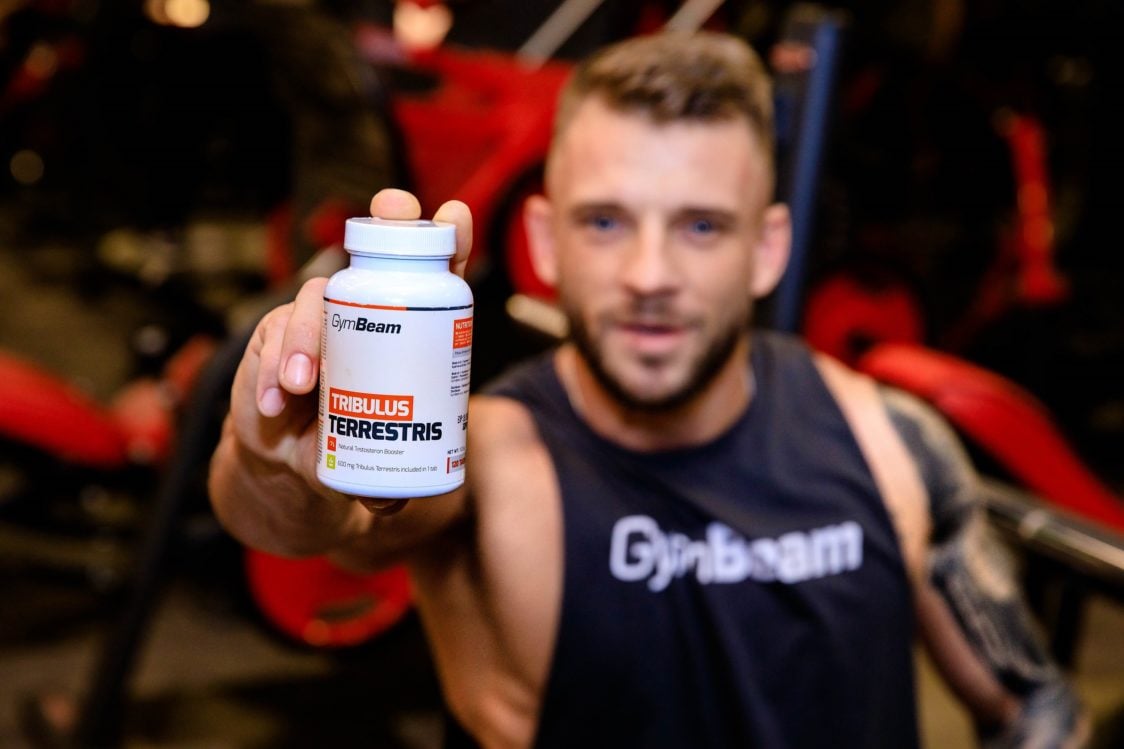
Testosterone deficiency has a whole range of symptoms which you can notice without a doctor. However, if you want to be sure about your level of testosterone, find an expert who will perform tests to verify its exact level. As it was mentioned in the article, testosterone has a great impact on our body and in addition, its level can drop very quickly. It is not always necessary to undergo treatment to boost it, sometimes a change in lifestyle and intake of appropriate nutritional supplements will be enough. We believe that you have learnt everything important about testosterone and its role in the body. Do you want your friends to know about this important hormone? Feel free to support our article by sharing it.
[1] George N. Nassar, Stephen W. Leslie - Physiology, Testosterone – https://www.ncbi.nlm.nih.gov/books/NBK526128/
[2] James Roland - What Is Testosterone? – https://www.healthline.com/health/what-is-testosterone
[3] Vineet Tyagi, MD, Michael Scordo, MD, Richard S. Yoon, MD, Frank A. Liporace, MD, Loren Wissner Greene, MD, MA - Revisiting the role of testosterone: Are we missing something? – https://www.ncbi.nlm.nih.gov/pmc/articles/PMC5434832/
[4] Testosterone — What It Does And Doesn't Do – https://www.health.harvard.edu/drugs-and-medications/testosterone--what-it-does-and-doesnt-do
[5] Healthline Editorial Team - Low Testosterone in Men – https://www.healthline.com/health/side-effects-of-low-testosterone
[6] What is Low Testosterone? – https://www.urologyhealth.org/urologic-conditions/low-testosterone
[7] Jenna Fletcher - What are the symptoms of low testosterone? – https://www.medicalnewstoday.com/articles/322647
[8] Low Testosterone (Male Hypogonadism) – https://my.clevelandclinic.org/health/diseases/15603-low-testosterone-male-hypogonadism
[9] Jerry R. Balentine, DO, FACEP - Low Testosterone (Low-T) – https://www.medicinenet.com/low_testosterone_low_t/article.htm
[10] Mayo Clinic Staff - Testosterone therapy: Potential benefits and risks as you age – https://www.mayoclinic.org/healthy-lifestyle/sexual-health/in-depth/testosterone-therapy/art-20045728
[11] Colleen M. Story - Options for Increasing Your Testosterone – https://www.healthline.com/health/low-testosterone/testosterone-replacement-therapy-and-other-options
[12] Lana Barhum - How do you boost testosterone naturally? – https://www.medicalnewstoday.com/articles/322508
[13] John Fawkes - This Is How to Raise Your Testosterone Levels Naturally – https://medium.com/better-humans/this-is-how-to-raise-your-testosterone-levels-naturally-995daab1a944
[14] Rudy Mawer - 8 Proven Ways to Increase Testosterone Levels Naturally – https://www.healthline.com/nutrition/8-ways-to-boost-testosterone
[15] Enza Topo, Andrea Soricelli, Antimo D'Aniello, Salvatore Ronsini, Gemma D'Aniello - The role and molecular mechanism of D-aspartic acid in the release and synthesis of LH and testosterone in humans and rats – https://www.ncbi.nlm.nih.gov/pmc/articles/PMC2774316/
[16] Testosterone Week: How I Doubled My Testosterone Levels Naturally and You Can Too – https://www.artofmanliness.com/articles/how-to-increase-testosterone-naturally/
[17] David R Hooper, William J Kraemer, Catherine Saenz, Kevin E Schill, Brian C Focht, Jeff S Volek, Carl M Maresh - The presence of symptoms of testosterone deficiency in the exercise-hypogonadal male condition and the role of nutrition – https://pubmed.ncbi.nlm.nih.gov/28470410/
[18] Daniel Yetman - How Alcohol Affects Testosterone – https://www.healthline.com/health/how-alcohol-affects-testosterone
[19] Ylenia Duca, Antonio Aversa, Rosita Angela Condorelli, Aldo Eugenio Calogero, Sandro La Vignera - Substance Abuse and Male Hypogonadism – https://www.ncbi.nlm.nih.gov/pmc/articles/PMC6571549/#B8-jcm-08-00732
[20] Michael Hull - How can you increase testosterone naturally? – https://examine.com/nutrition/increase-testosterone-naturally/
[21] Louise Morales-Brown - What are some of the top testosterone supplements and boosters? – https://www.medicalnewstoday.com/articles/best-testosterone-supplements
[22] Rudy Mawer - The 8 Best Supplements to Boost Testosterone Levels – https://www.healthline.com/nutrition/best-testosterone-booster-supplements

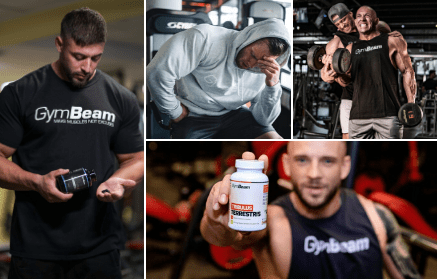
Add a comment